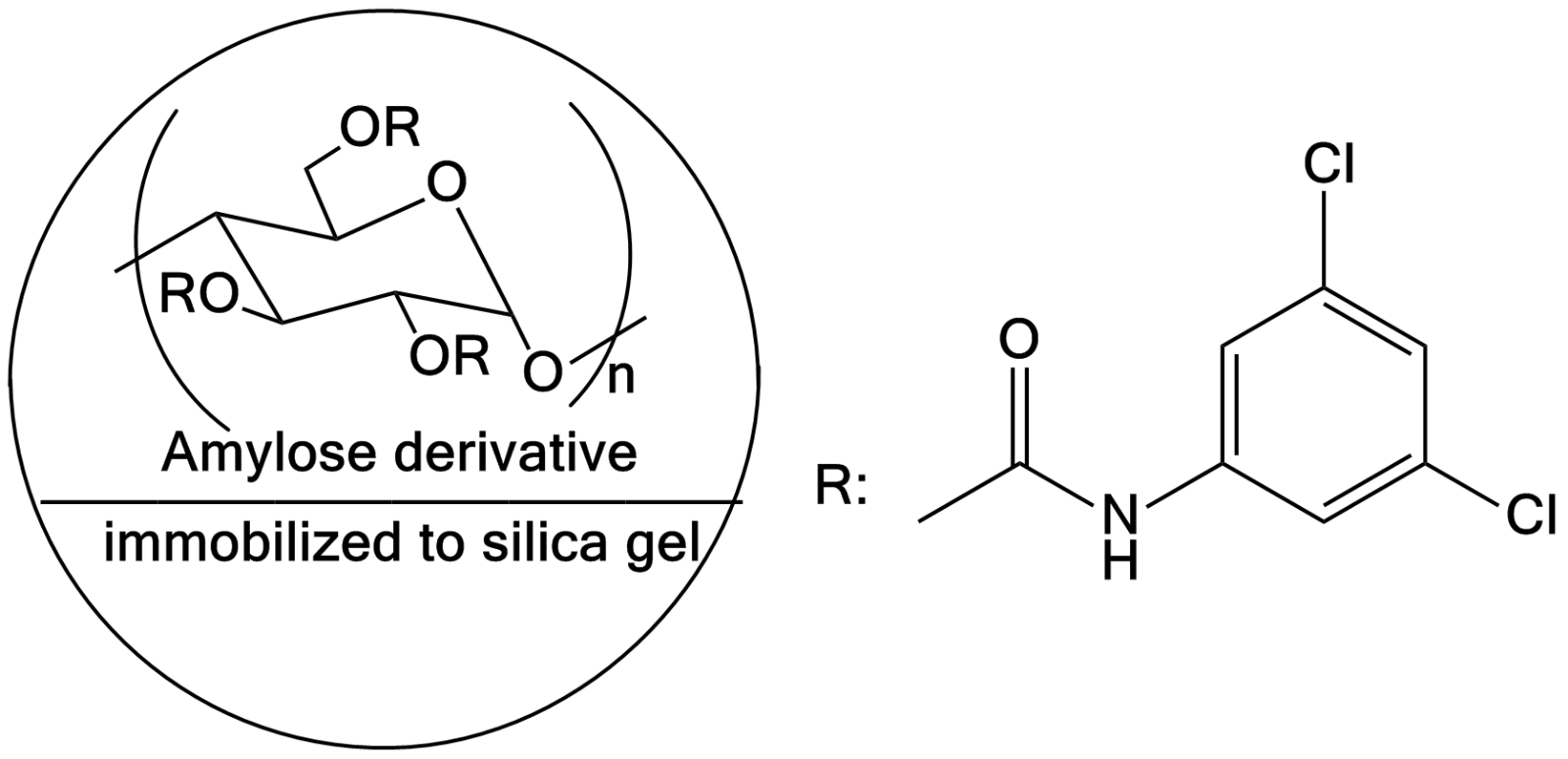Daicel 85445 CHIRALPAK ® IE SFC Supercritical Fluid Chromatography Polysaccharide Derivatives Solvent-based Semi Preparative HPLC Chiral Column, 20mm, 250mm, 5µm

The surface of the silica was covalently bound with amylose - tris (3,5-dichlorophenylcarbamate)
IE solvent-resistant chiral column, the amylose-tris (3,5-dichlorophenylcarbamate) covalently bonded to the surface of the silica gel.
Unrestricted use of solvents, a wide range of dissolution conditions, the use of any miscible solvent as a mobile phase, dissolved samples, chiral column regeneration.
Examples of solvents that can be used:
Normal phase: n-Hexane, IPA, EtOH
Special mobile phase: Ethyl acetate, CH 3 Cl, THF, MTBE
Inverted: H 2 O, of IPA, MeOH
CHIRALPAK IE-3 / SFC, CHIRALPAK IE / SFC uses a stationary phase in which an amylose derivative (Amylose tris (3,5-dichlorophenylcarbamate)) is immobilized on a silica gel carrier. As a modifier, you can use all solvents that can be used for chromatographic columns such as methanol, ethanol, 2-propanol, acetonitrile, THF, halogen solvents and other silica gel-based chromatography columns. For the SFC columns CHIRALPAK IE - 3 / SFC, CHIRALPAK IE / SFC have the strength required for SFC specified in the High Pressure Gas Safety Act, and we will attach documents to prove this to the product.
Parameters
| Particle size | CHIRALPAK IE-3 / SFC: 3 μm CHIRALPAK IE / SFC: 5 μm |
|---|---|
| pressure | 8 to 20 MPa |
| temperature | ~ 25 ℃ |
| Sealing solvent | 2-Propanol 100% |
Column Storage
For column storage, remove the acidic or basic additives by flushing the column with the same mobile phase without the additive. Columns can be stored with the additive-free mobile phases.
Operating these columns in accordance with the guidelines outlined here will result in a long column life.
Mobile phase
i CHIRAL serise series can use various types of solvents as the mobile phase or dissolve the sample solvent (note the mutual solubility between solvents), for example as follows:
N-Hexane | Dimethylsulfoxide (DMSO) |
Isopropanol (IPA) | ● Chloroform (Trichloromethane) |
● Methyl tert-butyl ether (MTBE) | ● Methyl cyanide |
● Dichloromethane | ● Methylbenzene |
Tetrahydrofuran (THF) | 1,4-Dioxane |
● Acetic ether | Water (H 2 O) |





